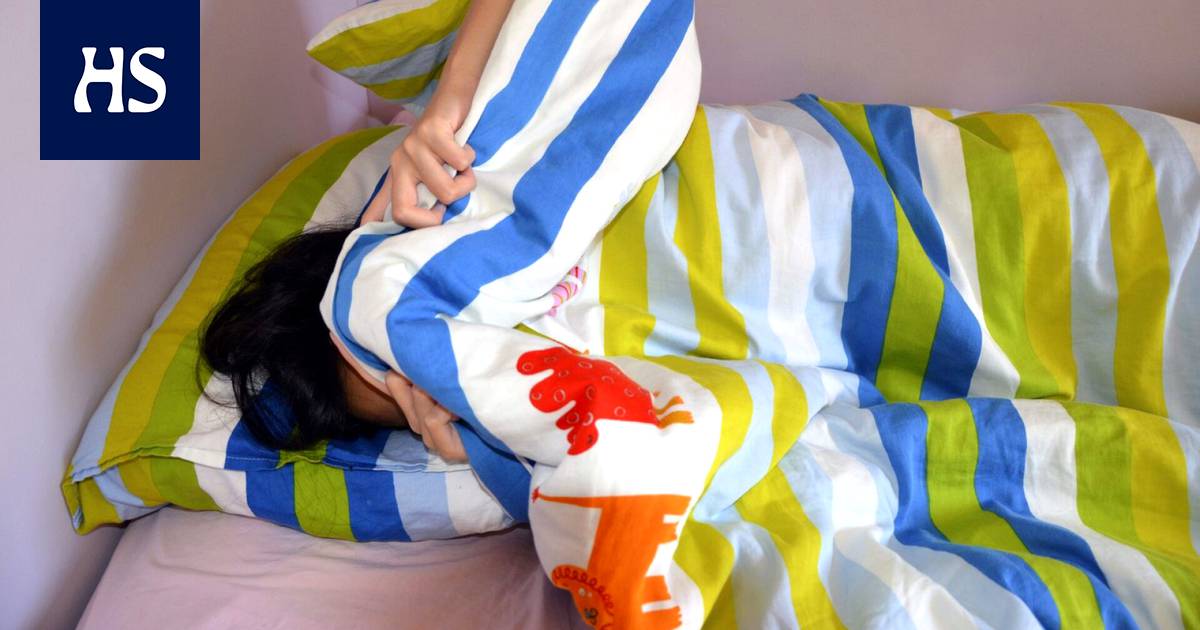In addition to its refreshing effect, light has another main function: it controls the body’s central clock. Our internal clock has a big impact on how we sleep.
Finns summer is the most difficult time of the year for sleep, says the research professor of the Institute of Health and Welfare (THL). Timo Partonen.
Many suffer from sleep disorders in the summer, and the reason is not only the heat. Sleep is affected by, among other things, social activities, relationships, exercise, alcohol and stress, but above all light.
Light is the most important pacemaker of the circadian rhythm, says the professor, coordinating director Tarja Saaresranta From the Sleep and Breathing Center of Turku University Central Hospital (Tyks).
In this story, Partonen and Saaresranta clarify why light affects our sleep so much.
Light directly affects how well or poorly we sleep.
When light is directed at the eyes, it travels through the fundus along nerve fibers to an area of the brain called the thalamus, which is very central in regulating the state of alertness. Whenever light hits the eyes, and especially when the light gets stronger, we are refreshed.
“This is how light affects how refreshed we feel or how much energy we have to do things,” says Partonen.
Refreshing besides the effect, light has another main function: it controls the internal clock. The internal clock is the body’s central clock consisting of neurons, which is located in the hypothalamus of the brain and which regulates our vital functions.
The internal clock forms a circadian rhythm, i.e., among other things, it regulates when we would naturally sleep and stay awake. If the internal clock starts to fail, and it cannot be synchronized to the same rhythm as the time-regulating clock, it would gradually lead to a person sleeping during the day and staying awake at night.
If the eyes are exposed to light day after day at the same time of day, especially in the morning, it keeps the internal clock in rhythm. This is also good for sleeping.
In winter, the internal clock starts to fail because the eyes are not exposed to enough light in the morning.
On the other hand, in the summer, the internal clock can start to fail when the eyes are exposed to light in the evenings during bright summer evenings. Light keeps us awake for a long time and sleep is delayed.
In addition, the quality of sleep may be poor and it may not be enough for as long as your own need for sleep would require. The internal clock also affects how long it is possible to sleep.
Internal vital functions controlled by the clock are, for example, the production of hormones. The most important hormone in terms of sleep is melatonin, i.e. the night hormone.
“Naturally, the body produces a lot of melatonin only at night, but only when the night is dark enough,” says Partonen.
Once again, the guiding force is light. Therefore, difficulties in the production of melatonin can also be behind summer sleep disorders. Light inhibits the production and secretion of melatonin from the pineal gland of the brain into the bloodstream.
When there is a lot of melatonin in the bloodstream, it opens the gate to sleep. Fatigue intensifies.
Melatonin not only controls falling asleep, but also the quality of sleep. It deepens the sleep stages so that you can move from a light sleep stage to deeper sleep stages.
“Melatonin keeps sleep as a unified package. A person naturally wakes up in the middle of sleep, but melatonin keeps the awakening in check so that the awakenings do not turn into monitoring,” says Partonen.
When light stops entering the eyes, it takes about an hour before there is enough melatonin in the bloodstream to fall asleep. It would be good to remember this in the summer, when there is enough light late into the evening. On the other hand, the light from smart devices can also inhibit melatonin production.
“
The need for sleep does not decrease by an average of a few minutes in the summer.
Although the sleeps would have been short, some feel that they don’t get tired during the day in the summer in the same way as in the winter. The experience may be real.
“At least it’s easier to wake up than in the dark morning, when the light has reduced melatonin production even before we wake up,” says Saaresranta.
The production of tiring melatonin therefore ends more easily on a summer morning than on a dark winter morning.
On the other hand, the feeling of being refreshed is also related to having managed to keep a regular sleep rhythm. While in the winter it often happens that the internal clock goes off due to the lack of light and wakes up late, in the summer the internal clock stays in its rhythm more easily due to the morning light.
However, the need for sleep remains almost the same regardless of the season, although according to Saaresrantna there are indications that people sleep less in the summer than in the winter. According to Partonen, however, the need for sleep does not decrease by an average of a few minutes in the summer.
For some for some people, changes in circadian rhythm and brightness are easier than for others.
“There are big differences between people in how they generally adapt to, for example, shift work or time difference stress. If a person already has trouble falling asleep, it will probably get worse in the summer,” says Saaresranta.
Fixing summer sleep disorders has nothing to do with light. You can help your internal clock by spending time outside in the light, mainly in the morning.
You can get help from a sleep mask that covers the eyes and blackout curtains, so that the bedroom is dark enough for melatonin production in the evenings.
Important would be to avoid sleep deprivation, so that the sleep rhythm does not get off track.
Partonen urges people to think about how much sleep is needed to stay refreshed the next day. In adults, the need for sleep varies between six and nine hours.
In addition, regular exercise in the morning or early afternoon helps sleep.
Alcohol always reduces the quality of sleep, Partonen reminds. Similarly, stress can make it difficult to sleep, so relaxing and letting go of worries helps sleep as well.
#Health #people #sleep #summer #reality #sleep #decreases #minutes #summer #expert







:format(jpeg):fill(f8f8f8,true)/s3/static.nrc.nl/bvhw/files/2022/07/data87972861-ce0c5a.png)

